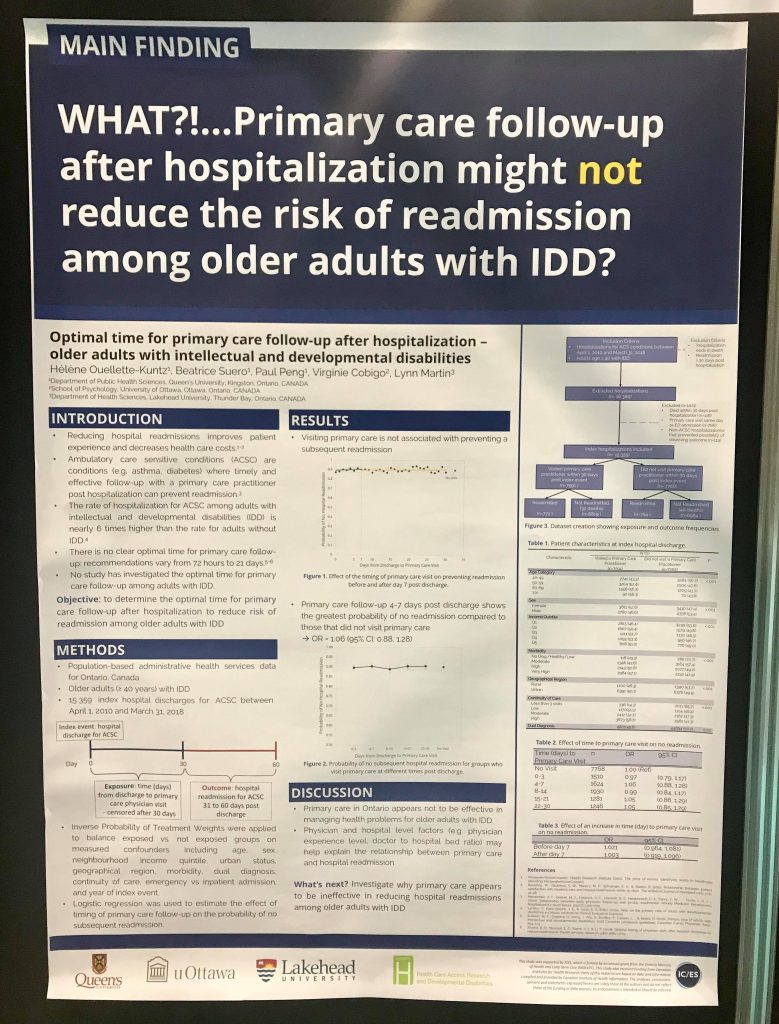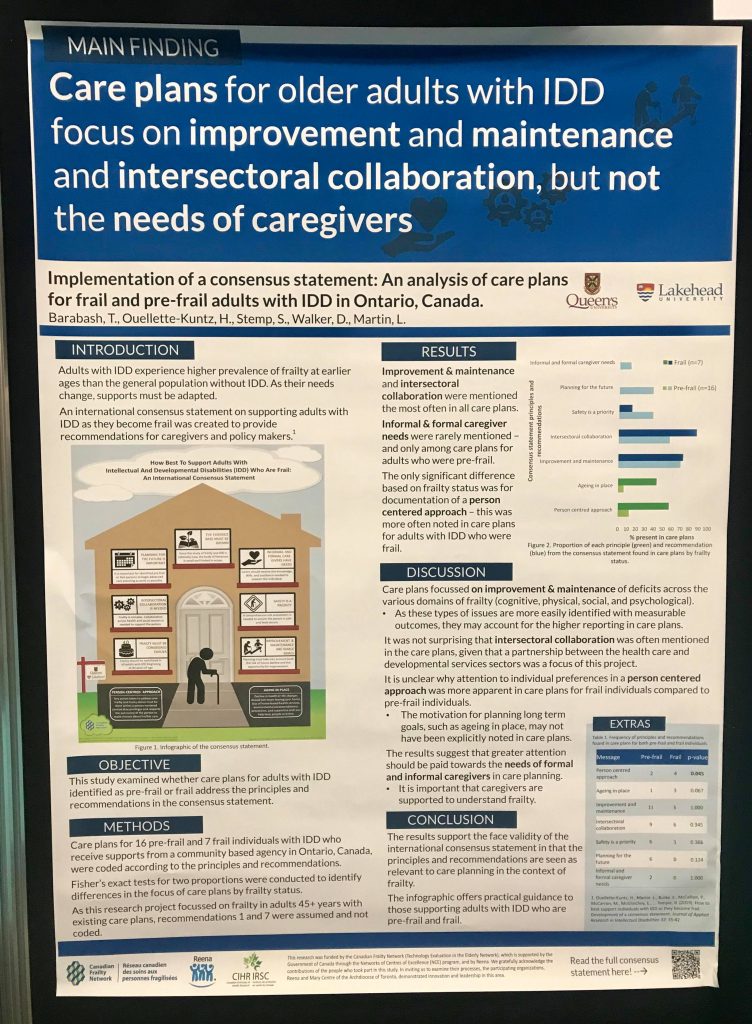Webinar – Intersectoral collaboration
MAPS researchers will be presenting a webinar on November 19th 2019 about intersectoral collaboration and its role in supporting adults with IDD who are frail! The webinar will provide information on frailty among adults with IDD, principles and recommendations to guide action on frailty, and key elements of effective intersectoral collaboration. Attendees will also have the opportunity to provide valuable feedback during this interactive webinar! If you’re interested, register for the webinar at this link: https://zoom.us/webinar/register/WN_05fUBQxASU6eFanDx_WMfg


